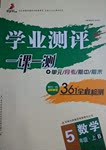题目内容
--I believe we've met before.
--No, ________. I've never been here before.
- A.it isn't the same
- B.it's true
- C.I don't think so
- D.I believe so
考查习惯用语。句意为:----我相信我们以前见过面。----不,我不这样认为,我以前从来没到过这儿。同意对方的观点用I think so.不同意对方的观点用I don't think so。因此C项符合题意。

 活力课时同步练习册系列答案
活力课时同步练习册系列答案 学业测评一课一测系列答案
学业测评一课一测系列答案补全对话
| A.When is Ann’s birthday? B.I’ll pick you up at 9:00. C.When are you free? D.I’m not sure. E.I’m sorry, but I have anothing thing to do tomorrow. F.I’m thinking about going to buy a gift for her. G.I think there will be twenty people at her party. |
B: Oh, I forgot it.Let’s go to buy gifts together.【小题2】
A: 【小题3】 what about the day after tomorrow?
A: OK, that’s fine.What time shall we meet?
B:【小题4】
A: Good! How many people will there be at Ann’s party?
B: 【小题5】 Maybe thirty or forty.
A: I can’t wait.I believe we’ll have fun at the party.
B: Sure we will.

“What is success?” Mr Gruber asked his 6th grade business class. It was his opening conversation for the first class of the term.
“Success is riding in a sweet car, watching an 80-inch TV, and living in a place with at least twelve rooms.” One student answered, earning laughs from all the students.
Mr Gruber smiled, but shook his head. “Tom, that is excess(过量). That is not success.”
“How about being able to provide for your family?” A blonde girl named Sandy in the front suggested as an answer.
“Now we’re getting closer,” Mr Gruber smiled, “but try thinking about what you need and what you want.”
“Getting everything you want.” Tom shouted out an answer again, trying for more laughs.
Mr Gruber sighed. “ I believe we’ve already talked about excess versus(与…比较) success.”
“Getting everything you need, but some of what you want?” James, sitting in the back wondered aloud.
“Quite right!” Mr Gruber clapped. “Success is getting everything you need and some of what you want. The more you get that you want, the more successful you are. You do reach a point where you are living in excess, though.”
“What does this have to do with business?” Tom asked. It seemed if it wasn’t funny, he wasn’t happy.
“Well, Tom, think of it this way: the point of business is to make a living to support your family. Once you have properly seen to (确保) their needs, you can then see to getting the extras that you want.”
“What if I don’t have a family?” he continued to be difficult.
“Then you have to provide for yourself, a family of one.”
“He has goldfish to think about!” Peter, Tom’s friend, shouted out.
“Then he needs to provide for a family of one with a fishbowl.” Mr. Gruber corrected himself.
Tom nodded, satisfied with that answer.
“So in the next nine weeks, we’re going to study basic business situations, like having a checking account and understanding credit cards.”
Tom rubbed his hands together excitedly. “When do we get to start spending?”
“You already are, Tom. You’re spending time with us!” Mr. Gruber laughed. “Now, let’s see what you guys know about credit cards…”
【小题1】What class did Mr Gruber teach?
| A.History | B.Science | C.Maths | D.Business |
| A.Tom | B.James | C.Peter | D.Sandy |
| A.He himself kept talking’ |
| B.He just read from a textbook. |
| C.He showed a movie to his students. |
| D.He got his students to take part in a discussion. |
| A.Strange | B.Patient | C.Shy | D.Proud |
| A.Get What You Want | B.Needs and Wants |
| C.Try to Get More Money | D.How to Live Well |
— I believe we’ve met here before.
— No, ________. It’s the first time I’ve been here.
| A.it isn’t the same | B.it’s true | C.I don’t think so | D.I believe so |
 se,
but we had some good really. We
enjoyed our holiday so much that we have already decided to go there again this
year. We are going to take our umbrellas with us. I believe we'll them
sometimes.
se,
but we had some good really. We
enjoyed our holiday so much that we have already decided to go there again this
year. We are going to take our umbrellas with us. I believe we'll them
sometimes.